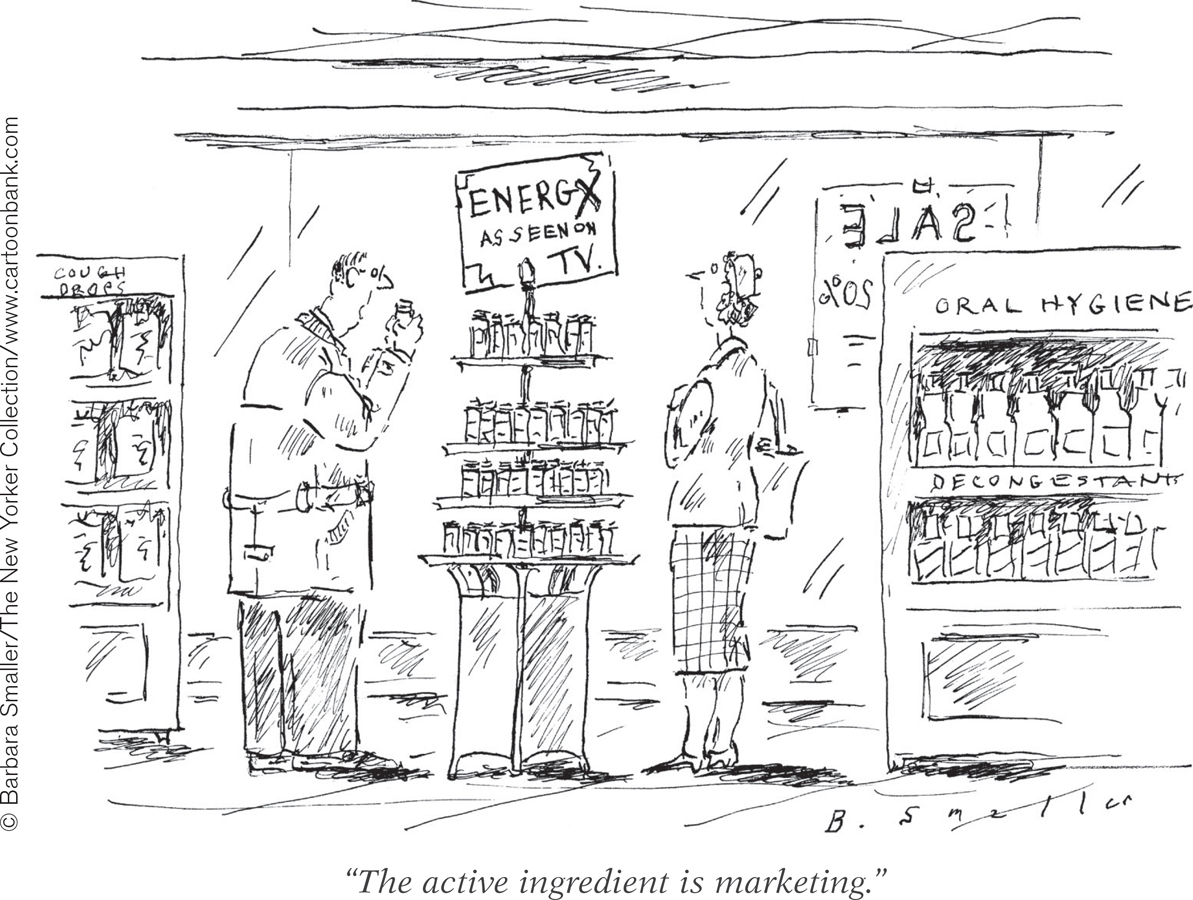The Role of Advertising
Wheat farmers don’t advertise their wares on TV, but car dealers do. That’s not because farmers are shy and car dealers are outgoing; it’s because advertising is worthwhile only in industries in which firms have at least some market power.
The purpose of advertisements is to convince people to buy more of a seller’s product at the going price. A perfectly competitive firm, which can sell as much as it likes at the going market price, has no incentive to spend money convincing consumers to buy more. Only a firm that has some market power, and that therefore charges a price above marginal cost, can gain from advertising. Industries that are more or less perfectly competitive, like the milk industry, do advertise—
Given that advertising “works,” it’s not hard to see why firms with market power would spend money on it. But the big question about advertising is why it works. A related question is whether advertising is, from society’s point of view, a waste of resources.
Not all advertising poses a puzzle. Much of it is straightforward: it’s a way for sellers to inform potential buyers about what they have to offer (or, occasionally, for buyers to inform potential sellers about what they want). Nor is there much controversy about the economic usefulness of ads that provide information: the real estate ad that declares “sunny, charming, 2 br, 1 ba, a/c” tells you things you need to know (even if a few euphemisms are involved—
But what information is being conveyed when a TV actress proclaims the virtues of one or another toothpaste or a sports hero declares that some company’s batteries are better than those inside that pink mechanical rabbit? Surely nobody believes that the sports star is an expert on batteries—
Why are consumers influenced by ads that do not really provide any information about the product? One answer is that consumers are not as rational as economists typically assume. Perhaps consumers’ judgments, or even their tastes, can be influenced by things that economists think ought to be irrelevant, such as which company has hired the most charismatic celebrity to endorse its product. And there is surely some truth to this. As we learned in Chapter 9, consumer rationality is a useful working assumption; it is not an absolute truth.

However, another answer is that consumer response to advertising is not entirely irrational because ads can serve as indirect “signals” in a world where consumers don’t have good information about products. Suppose, to take a common example, that you need to avail yourself of some local service that you don’t use regularly—
The same principle may partly explain why ads feature celebrities. You don’t really believe that the supermodel prefers that watch; but the fact that the watch manufacturer is willing and able to pay her fee tells you that it is a major company that is likely to stand behind its product. According to this reasoning, an expensive advertisement serves to establish the quality of a firm’s products in the eyes of consumers.
The possibility that it is rational for consumers to respond to advertising also has some bearing on the question of whether advertising is a waste of resources. If ads only work by manipulating the weak-